Sophia University Graduate School of Global Environmental Studies 20th Anniversary Symposium was held
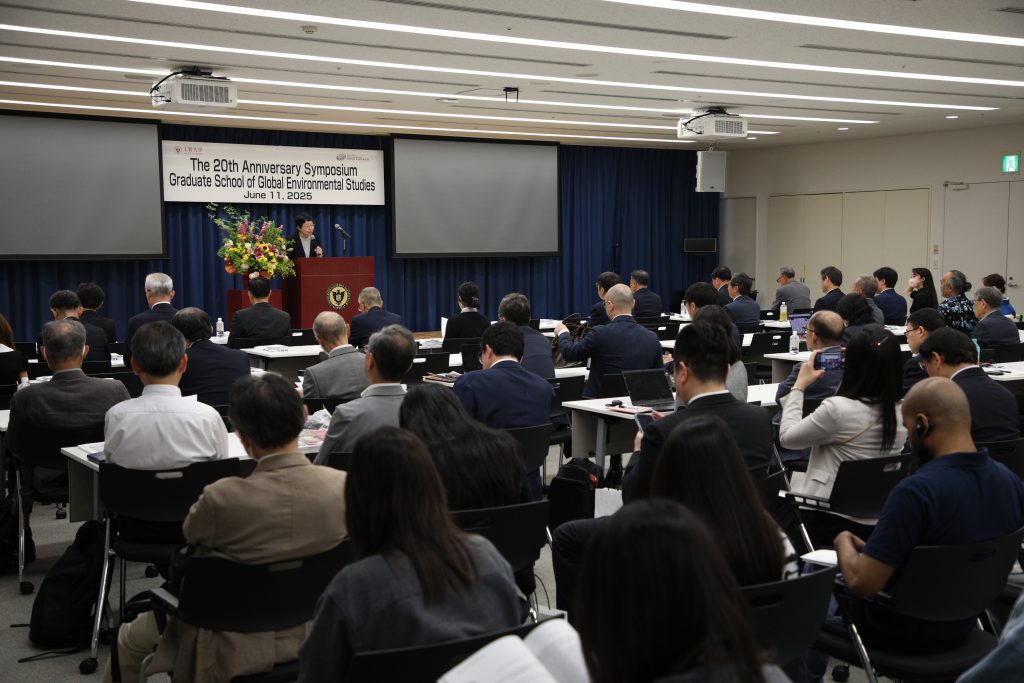
On June 11, 2025, Sophia University hosted a symposium to celebrate the 20th anniversary of Graduate School of Global Environmental Studies. The graduate school was established in April 2005, and in 2011, it launched an International Graduate Course taught in English, allowing students to obtain a degree in English.
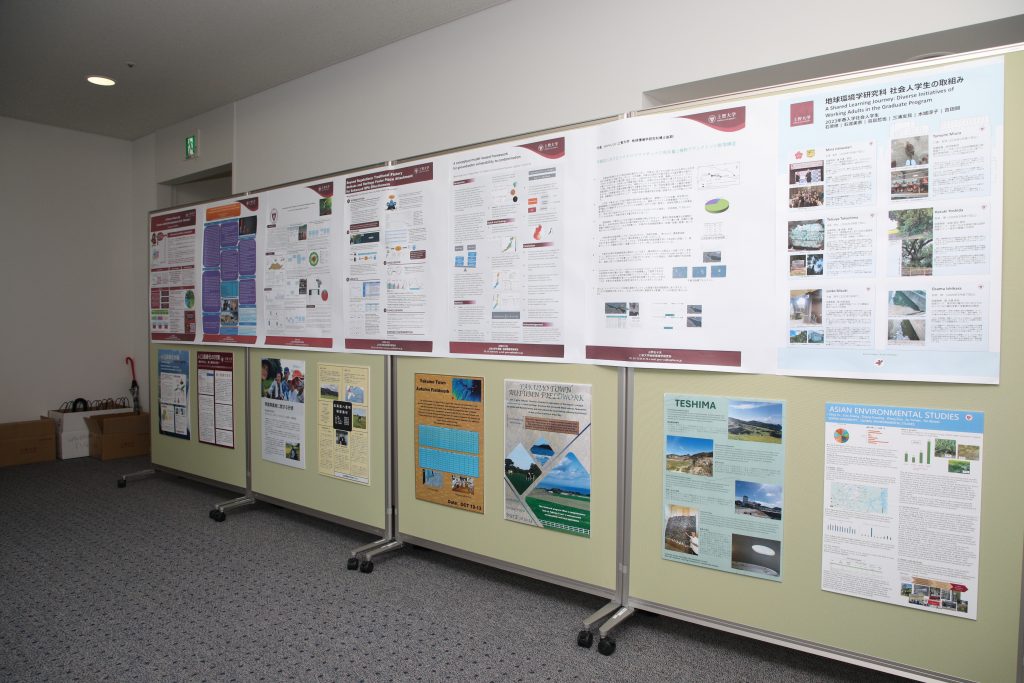
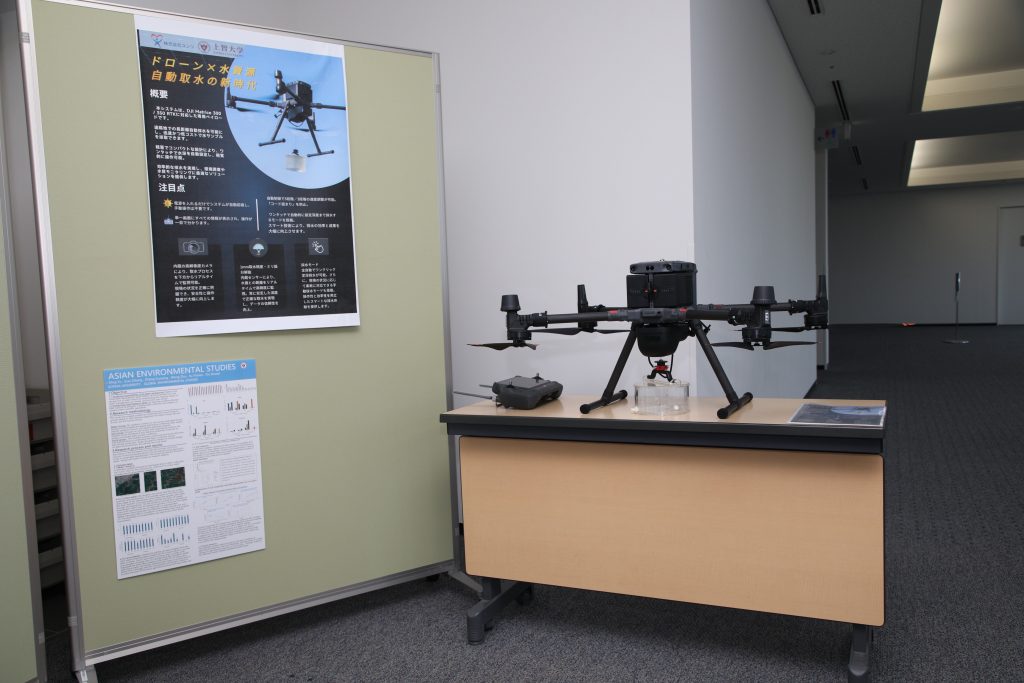
Environmental issues such as global warming, waste management, the creation of a circular economy, the environmental risks of chemicals, and the decline of natural resources and biodiversity are becoming increasingly complex and cannot be resolved by a single country. Against this backdrop, the graduate school integrates social and natural sciences to conduct advanced research and education. The school has contributed to creating a sustainable society that can achieve new economic development while preserving a healthy and abundant environment. The symposium was a chance to look back on the history and achievements of the Graduate School and to set new goals for the future. More than 150 people took part in the event.
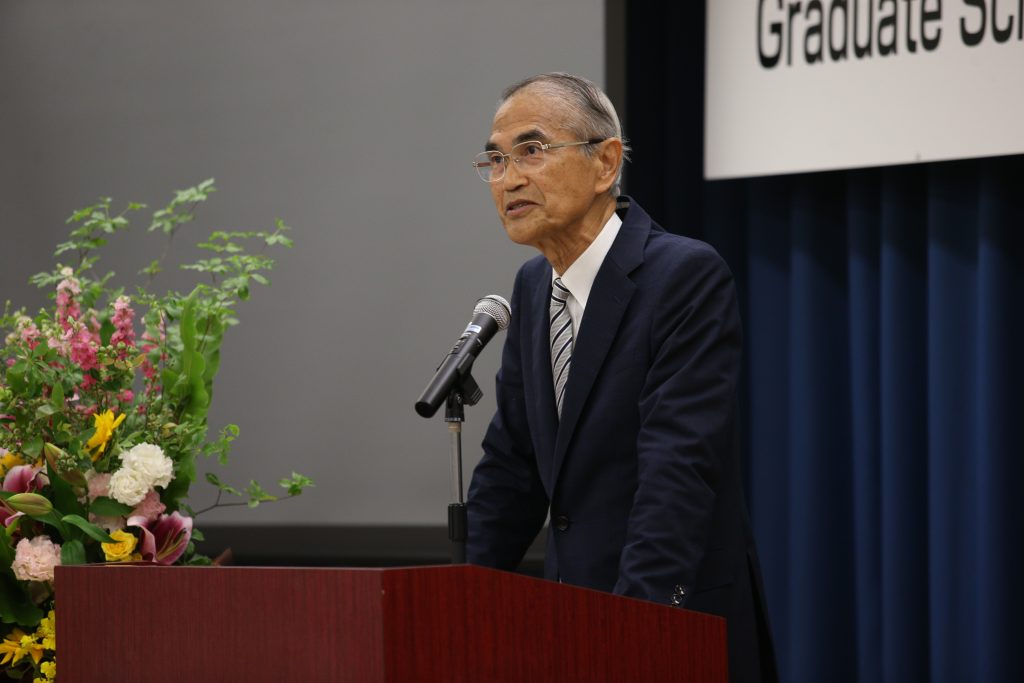
The symposium opened with a greeting from Professor Miki Sugimura, the president of Sophia University. Then, individuals from various fields, including the public and the business sectors, and academia, shared their ideas for a sustainable society. Representing academia were Professor Masahiko Isobe, former president of the Kochi University of Technology; Professor Xie Hualin, Vice President of Jiangxi University of Finance and Economics; Professor Kenichi Takai, Dean of the Graduate School of Science and Technology at Sophia University; and Professor Tsang Yiu Fai, Assistant Dean of the Graduate School at the Education University of Hong Kong. The speakers discussed the current complex state of environmental issues and presented various educational possibilities, such as interdisciplinary research and dual degree programs.
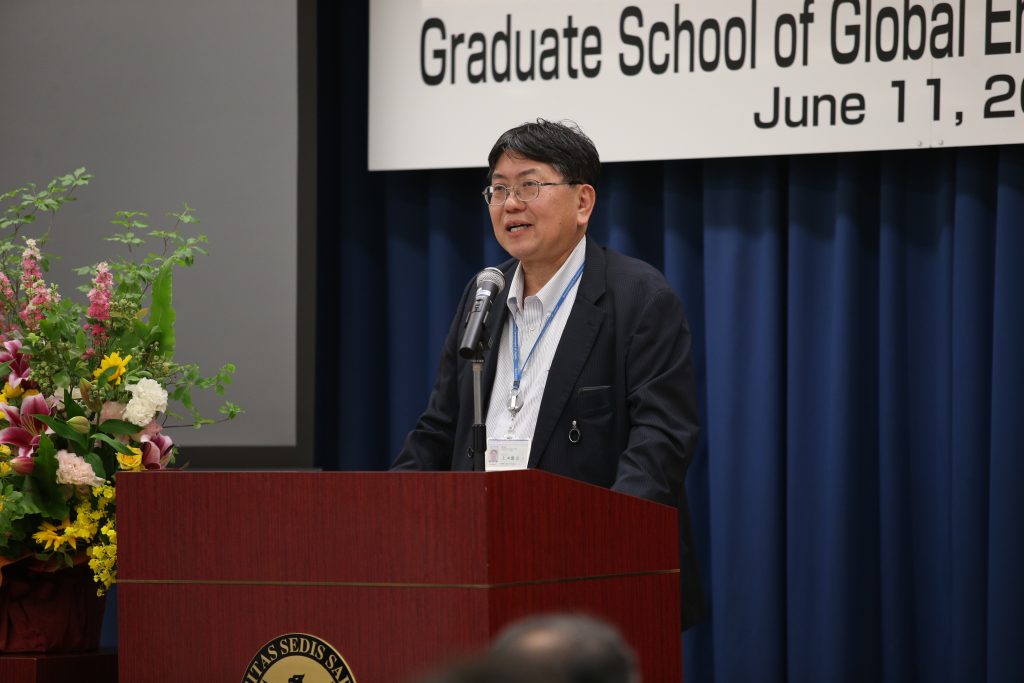
The next group of speakers included representatives from the public sector. These representatives were Mr. Yasuharu Ueda, Director of Ministry’s Secretariat, Ministry of the Environment; Mr. Takaaki Tsukahara, Mayor of Iinan Town, Shimane Prefecture; Mr. Akira Motoyama, Mayor of Uken Village, Kagoshima Prefecture; and Mr. Du Kewei, Minister-Counsellor at the Chinese Embassy in Japan. A video message from Mr. Ryugo Watanabe, Mayor of Sado City, Niigata Prefecture, was also presented. The speakers conveyed their desire to maintain a close partnership with the university, highlighting the significance of scientific expertise in policy decision-making and the importance of acquiring knowledge and experience both within Japan and in the global arena.
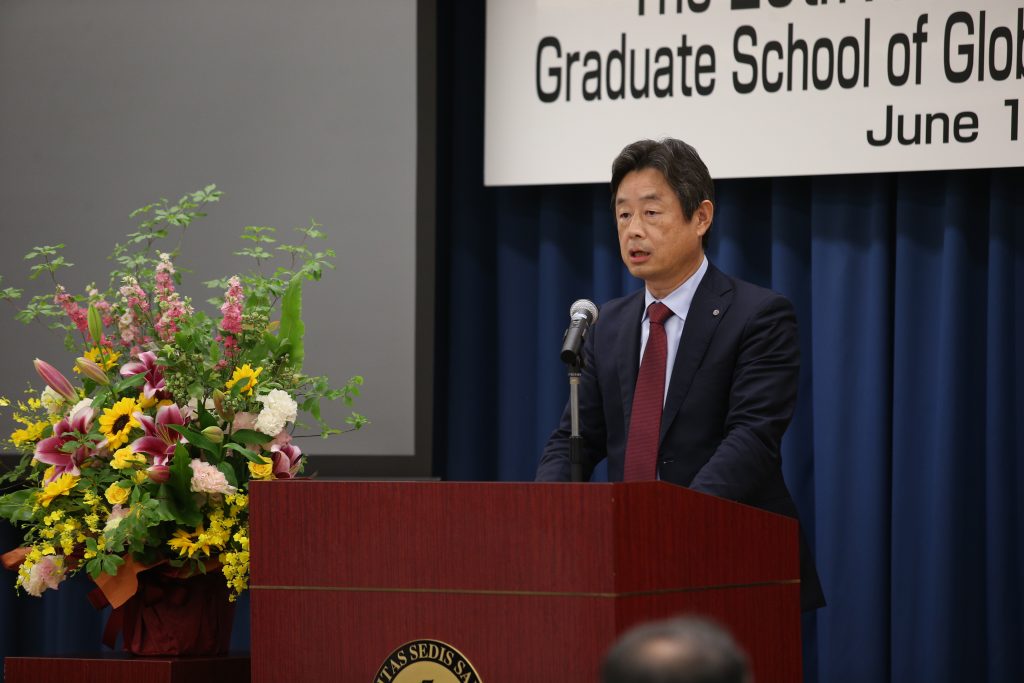
Representing the business sectors were Mr. Katsuhito Harada, Vice President, Corporate Strategy at Japan Airlines Co., Ltd., and Mr. Yoshihito Tabe General Manager, Sustainability Management Division at Itochu Corporation. They stressed that environmental concerns must be addressed in the business sectors and outlined the obstacles and initiatives of their respective companies in this regard.
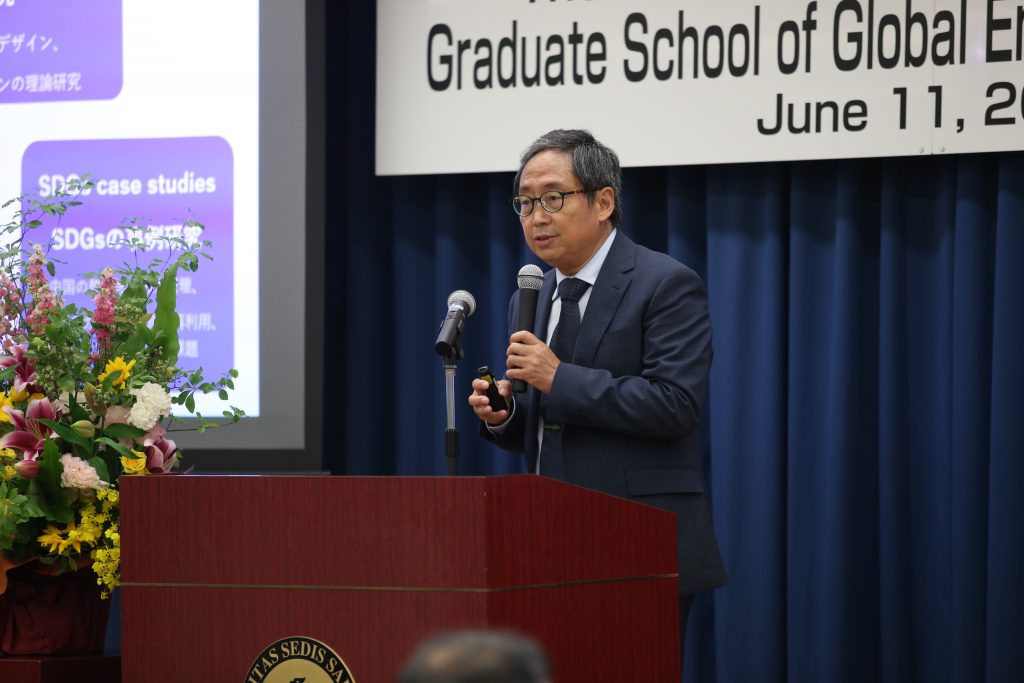
Following, Professor Guangwei Huang, Dean of the Graduate School of Global Environmental Studies, presented a report on the research findings and future prospects of the school. Emphasizing the motto “think globally, act locally,” he explained the interdisciplinary mechanisms that contribute to achieving the Sustainable Development Goals (SDGs) across various fields. Recognizing the growing social demand for the graduate school amid an increasing number of prospective students, especially international students, Professor Huang outlined the vision to emerge as a world-leading graduate school for sustainable education and research by 2030. Professor Huang also expressed his intention to strengthen collaboration with external partners, in addition to the strong leadership demonstrated by faculty, students, and the university.
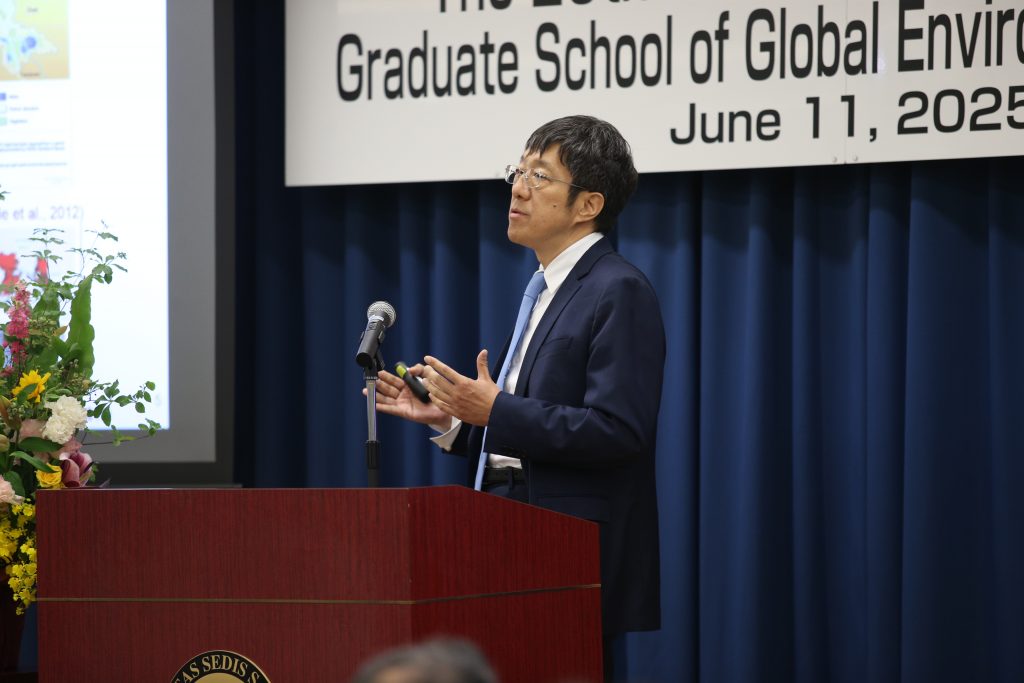
Then, three experts gave keynote speeches. Xin Li, a Professor at the Chinese Academy of Sciences presented “Modeling Complex Human-Nature Systems at the River Basin Scale in the Age of AI and Big Data,” introducing simulations of complex river basin systems to achieve harmony between the economy and ecology. He also cited examples of interdisciplinary collaboration on rivers between the Chinese Academy of Sciences, Tokyo University of Agriculture and Technology, and our university. He expressed his high hopes for future research developments.
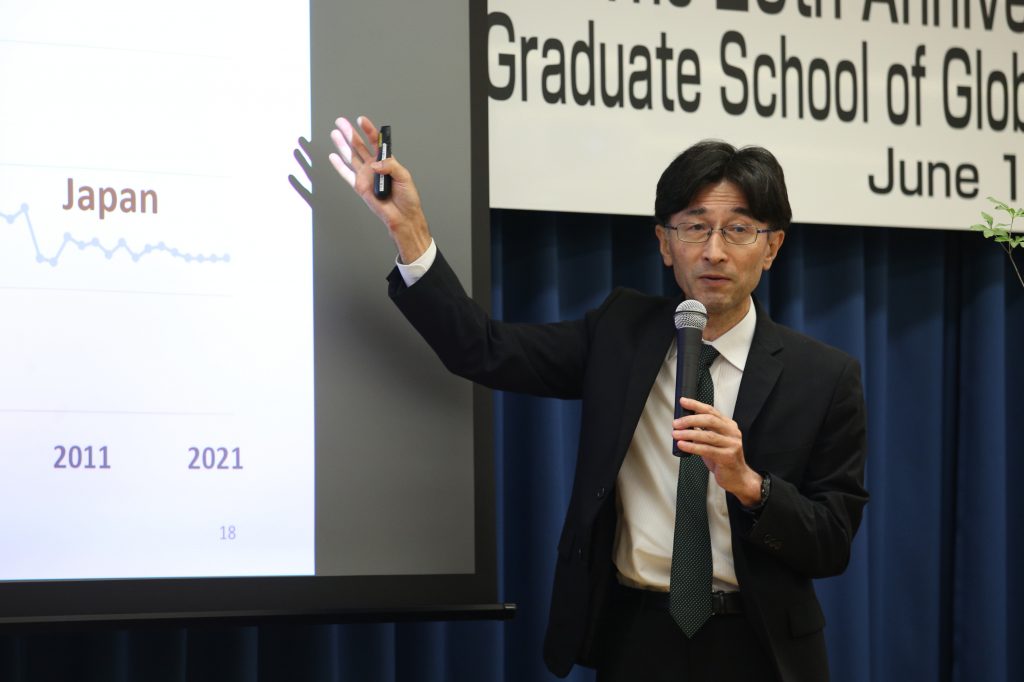
Next, Koki Toyoda, a professor at the Tokyo University of Agriculture and Technology, presented the findings of a study on abandoned farmland, mentioning the collaborative program between his university and ours. Based on the crop/plant-land relationship, he reported that several growth-impeding factors had been discovered. He also stated that cross-border research, such as comparing rice paddies in Japan and China, is only possible through collaboration between universities.
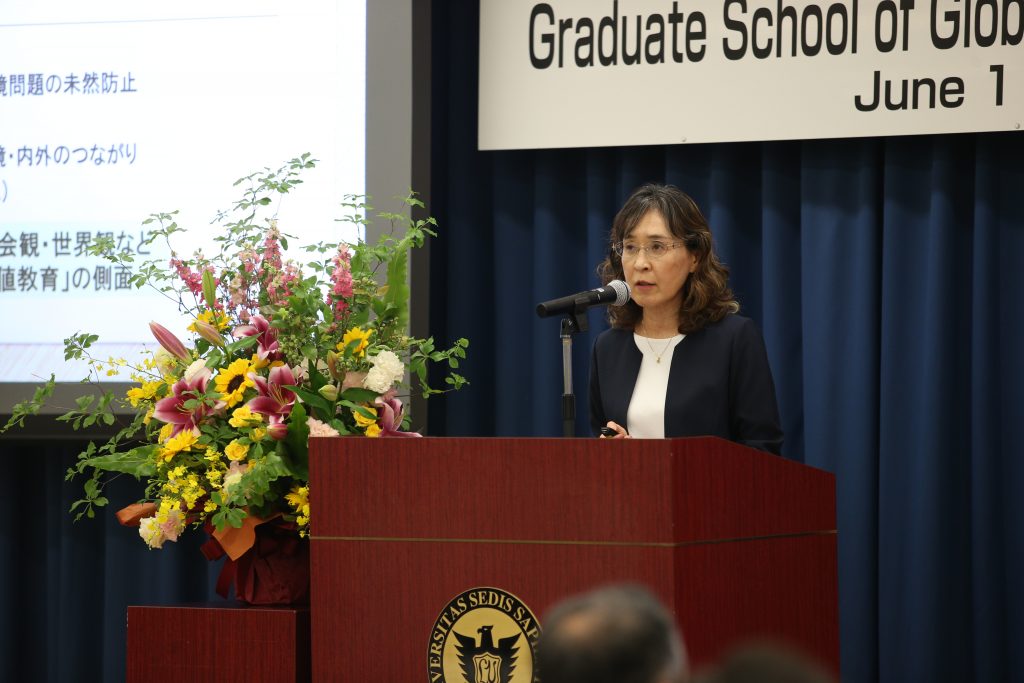
Then, Professor Mami Yoshikawa, Chairperson Christian Humanism Division, Center for Liberal Education and Learning Studies at Sophia University presented “Environmental Education for the Future,” a program that promotes sustainability and behavioral change in individuals to contribute to a sustainable society. She emphasized that it is essential to pursue values that enable us to envision a desirable future, along with specific methods for promoting behavioral change to realize that vision.
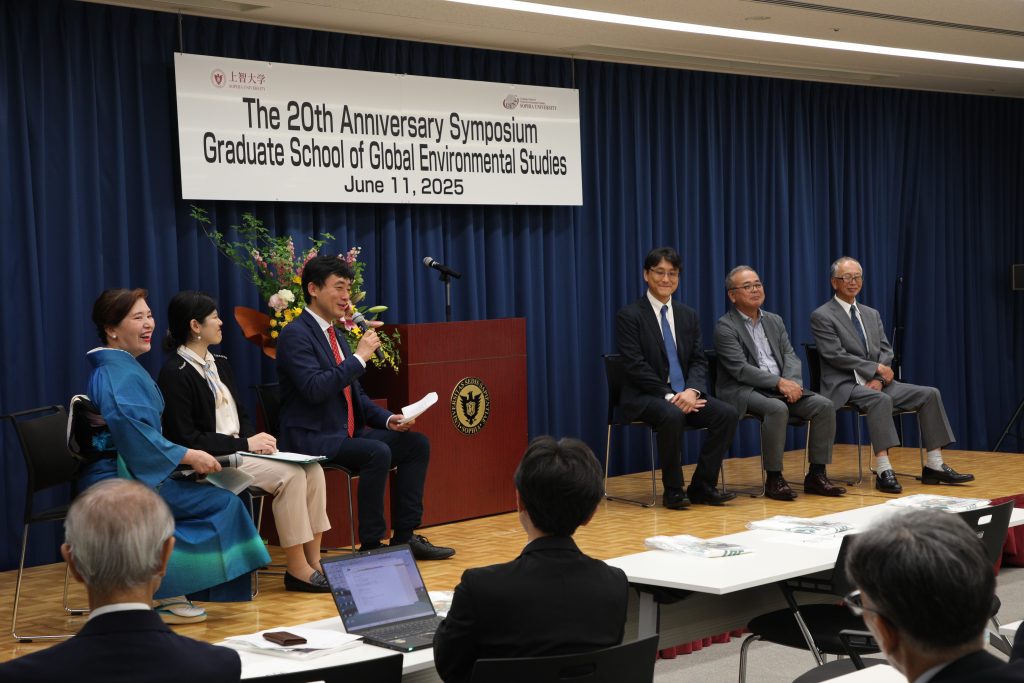
In a panel discussion titled “Industry-Government-Academia-NGO Collaboration: JAL-Uken Village-Itochu-Sophia Collaboration,” Akemi Ori, a professor at the Graduate School of Environmental Studies, served as moderator. She stressed the importance of collaboration, emphasizing the need to leverage each party’s strengths to facilitate knowledge sharing. Past collaborations and achievements were presented through case studies. During the second half of the session, the audience engaged in lively discussions about topics such as communicating with and involving young people, the reasons why companies should engage in environmental protection activities beyond those that generate profit, and the expectations of Sophia University.
Additionally, graduate school alumni and current students took the stage to share what they had learned, highlighting the appeal of the graduate school. They also expressed their determination to continue addressing SDGs and environmental issues.
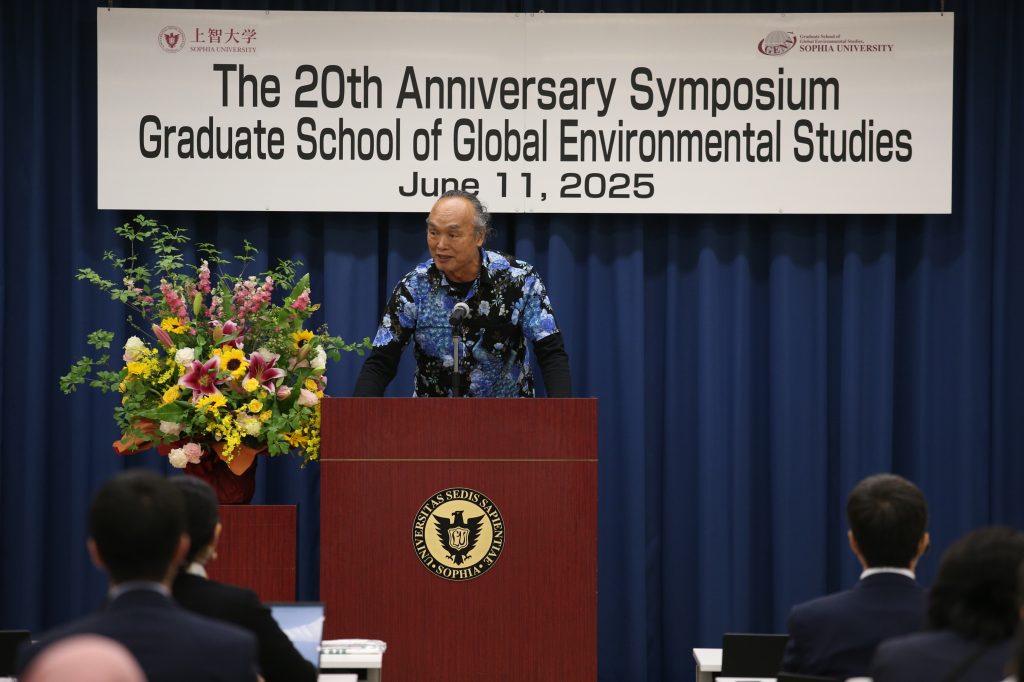
Professor Emeritus Toyoaki Washida of Sophia University shared his thoughts on the establishment of the Graduate School during his time as its dean, delivering the closing remarks. He concluded the symposium by stating, “Through this symposium, I am confident that the Graduate School of Global Environmental Studies’ international network is expanding further.”